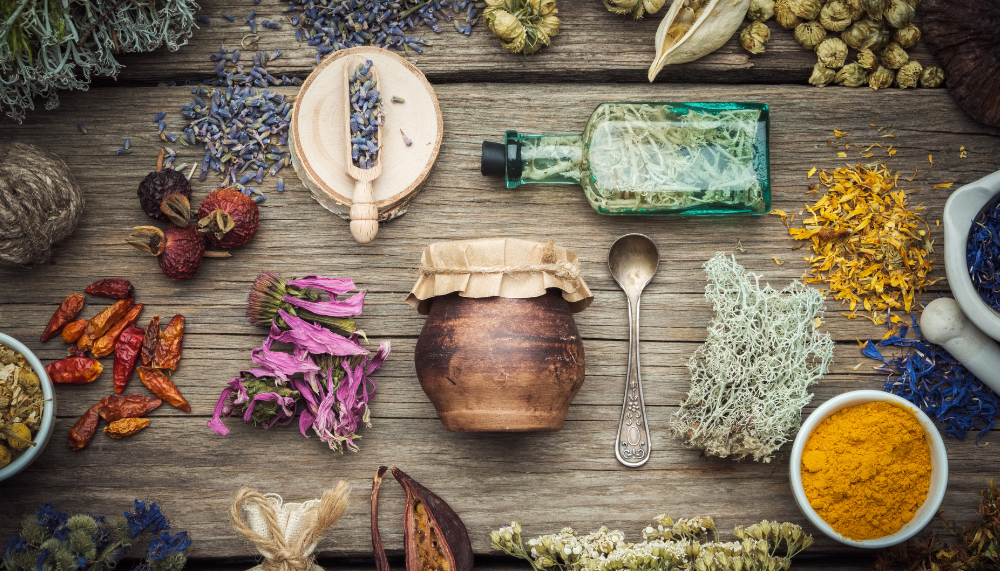Herbal medicine has deep roots in Nigerian culture. From curing malaria with dogonyaro leaves to using bitter leaf for blood cleansing, traditional remedies remain widely accepted across villages, towns, and even urban cities. While some herbal remedies are backed by science, others are based on myths or carry serious health risks.
In this article, we explore the facts, the fictions, and the future of herbal remedies in Nigeria—what truly works, what doesn’t, and how to use herbal medicine safely in modern times.
Why Nigerians Trust Herbal Remedies
For centuries, Nigerian communities have relied on herbs for healing. Reasons for their popularity include:
- Affordability: Herbs are cheaper than pharmaceutical drugs.
- Cultural belief: Passed down through generations.
- Accessibility: Easily found in local markets and rural environments.
- Distrust in modern healthcare due to costs or poor service delivery.
However, not all herbs are safe, effective, or scientifically proven.
Herbal Remedies in Nigeria That Work (Backed by Studies or Traditional Evidence)
1. Bitter Leaf (Onugbu)
What it does: Supports blood sugar regulation, digestion, and detoxification.
Scientific evidence: Contains antioxidants, antibacterial and anti-inflammatory properties.
How to use: Squeeze juice or cook as soup (limit bitterness by boiling).
2. Neem Leaves (Dogonyaro)
What it does: Fights malaria, skin infections, and boosts immunity.
Scientific evidence: Contains compounds that have antimalarial and antibacterial activity.
How to use: Brew as tea or use the soaked leaves for bathing (external use is safest).
3. Scent Leaf (Nchuanwu)
What it does: Relieves cough, supports digestion, and boosts fertility in men.
Scientific evidence: Contains antimicrobial and antifungal properties.
How to use: Use in pepper soup, boil into tea, or chew fresh.
4. Garlic and Ginger
What it does: Fights infections, lowers blood pressure, and reduces inflammation.
Scientific evidence: Widely studied with proven immune-boosting benefits.
How to use: Crush and add to food, smoothies, or tea.
5. Turmeric
What it does: Reduces inflammation and supports joint health.
Scientific evidence: Contains curcumin, a powerful antioxidant.
How to use: Add to food or drink as tea with black pepper for better absorption.
Herbal Remedies in Nigeria That Don’t Work or Are Risky
1. “Agbo” (Herbal Concoctions)
Issues: Most “agbo” mixtures are unregulated, contain unknown ingredients, and can damage the liver or kidneys.
Truth: No standard dosage, can interact with medications or cause toxicity.
Advice: Avoid unknown or untested mixtures from street vendors.
2. Herbs Promoted as HIV or Cancer Cures
Issues: No Nigerian or international scientific body has approved any herb as a standalone cure for HIV/AIDS or cancer.
Truth: These claims can delay medical treatment and worsen health outcomes.
Advice: Always combine herbal use with proper medical care—don’t replace it.
3. Herbs for Abortion or Fertility Boosting
Issues: Many women use unverified herbs to terminate pregnancies or treat infertility, risking severe bleeding, infection, or death.
Truth: Herbal abortion is unsafe and illegal in Nigeria.
Advice: Consult a qualified gynecologist or fertility expert for proper care.
4. Excessive Use of Laxative Herbs (Senna, Aloe)
Issues: Can lead to dehydration, electrolyte imbalance, or dependency.
Advice: Use sparingly and under guidance.
Dangers of Misusing Herbal Remedies
- No dosage regulation
- Risk of kidney and liver damage
- Interaction with prescription drugs
- Pregnancy complications
- False hope and treatment delay
Safe Use of Herbal Remedies in Nigeria: What to Do
- Consult a medical professional before using herbs—especially if pregnant, breastfeeding, or on medication.
- Use single herbs instead of complex, unregulated mixtures.
- Buy from trusted herbal stores or trained traditional practitioners.
- Do not replace prescribed medication with herbal alternatives without doctor’s approval.
- Educate yourself—many herbs have benefits, but only when used properly.
The Future of Herbal Medicine in Nigeria
There is growing interest in combining traditional herbal wisdom with modern science. Institutions like NIPRD (National Institute for Pharmaceutical Research and Development) are researching local herbs for safe medical use.
Nigeria’s herbal potential is enormous, but safety, standardization, and awareness must improve to protect public health.
Herbal remedies are part of our rich cultural heritage as Nigerians, but not every leaf is a cure. While some herbs like bitter leaf, neem, and scent leaf offer real benefits, others are either ineffective or downright dangerous. The key is to approach herbal medicine with caution, wisdom, and the guidance of trained professionals. Nature can heal, but only if you use it right.
